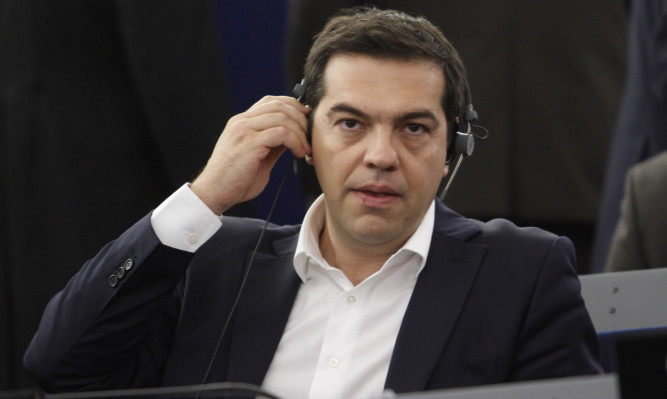
Fears have been raised that families in Greece will be left starving if the country’s economic paralysis continues.
As European finance ministers met yesterday to try to thrash out a deal on a third debt bailout, senior figures within Greece expressed grave concern about the future.
Priest Father Ignatios Moschos is worried there will soon not be enough food to go around, even if a deal is struck to avert a Greek exit from the euro.
“It will be hard, dark, painful,” he said. “We will have trouble receiving food.”
Top eurozone officials spent yesterday in Brussels discussing Greece’s bailout package.
Reports last night suggested the Greek government had persuaded its international creditors it can be trusted to bring in reforms.
However, locals remain unconvinced the development will bring an end to the problems the country is facing.
Panayiotis Monemvasiotis, the general manager of the Venetis bakery chain, which has been giving away about 10,000 loaves of bread a day to the poor, said scuffles are already breaking out.
“In the third round of austerity measures, which is beginning now, it is certain that in Greece there will be no consumers, there will be only beggars,” he said.
Xenia Papastavrou, a founding member of a food bank charity, echoed those fears.
He said: “I’m sure that things will get worse.”
Greece’s banks have been shuttered for the best part of two weeks and daily withdrawals from ATMs have been limited to 60 euro (£43).
It was stated last night that the restrictions would remain in place for “some time”.
On Saturday, Greek PM Alexis Tsipras cleared one hurdle as Greek parliamentarians backed a package of economic reforms and further austerity measures, in the hope it will convince its European partners to back a third bailout.
Greece has made a request to Europe’s bailout fund for a 53.5 billion euro (£38.5 billion) three-year financial package.
Greece has received bailouts totalling 240 billion euro (£172 billion) in return for deep spending cuts, tax increases and reforms from successive governments.
Though the country’s annual budget deficit has come down dramatically, Greece’s debt burden has increased as the economy has shrunk by a quarter.
The Greek government has made some form of debt relief a key priority and will hope that a comprehensive solution will involve European creditors at least agreeing to delayed repayments or lower interest rates.

Enjoy the convenience of having The Sunday Post delivered as a digital ePaper straight to your smartphone, tablet or computer.
Subscribe for only £5.49 a month and enjoy all the benefits of the printed paper as a digital replica.
Subscribe